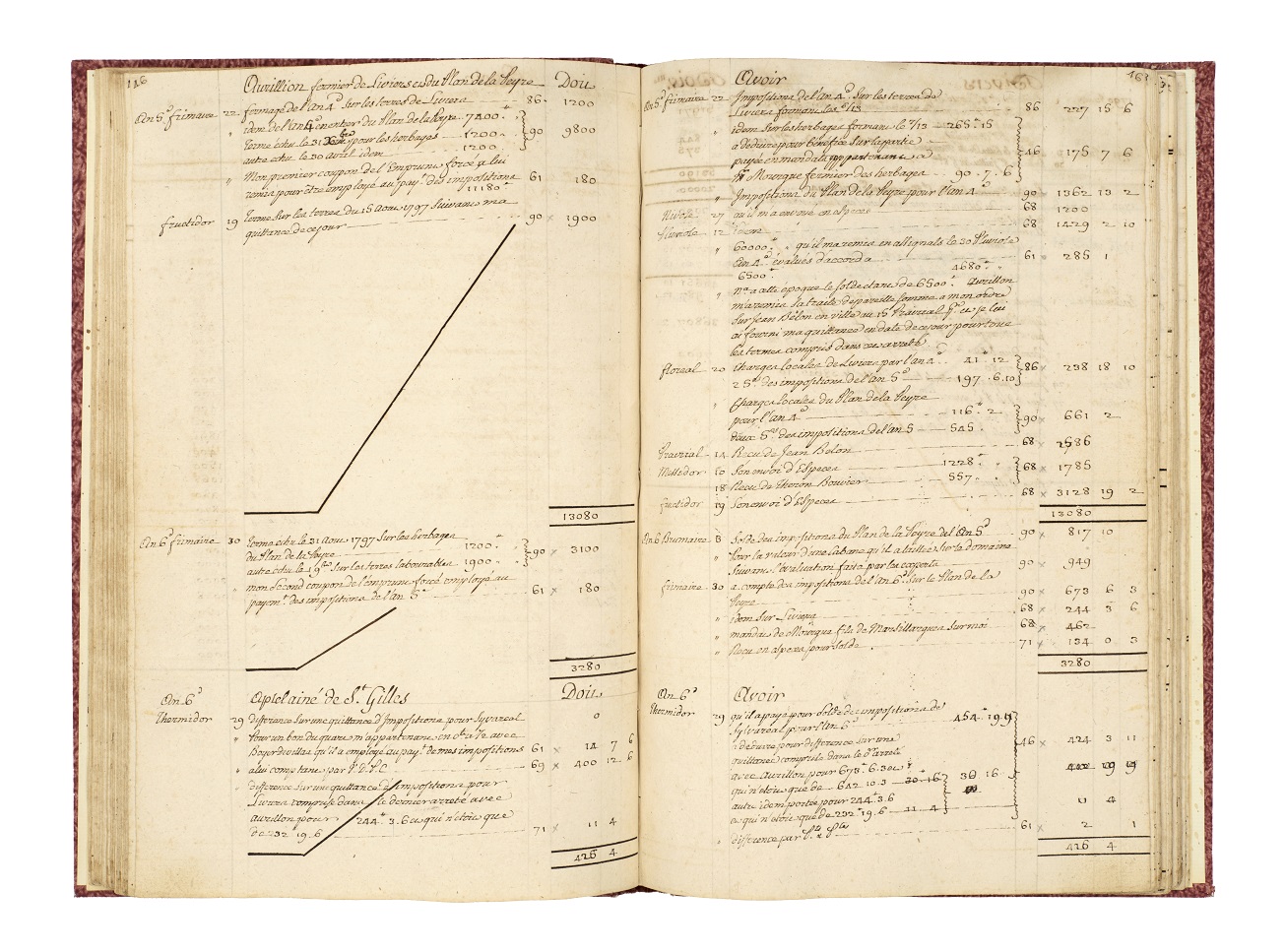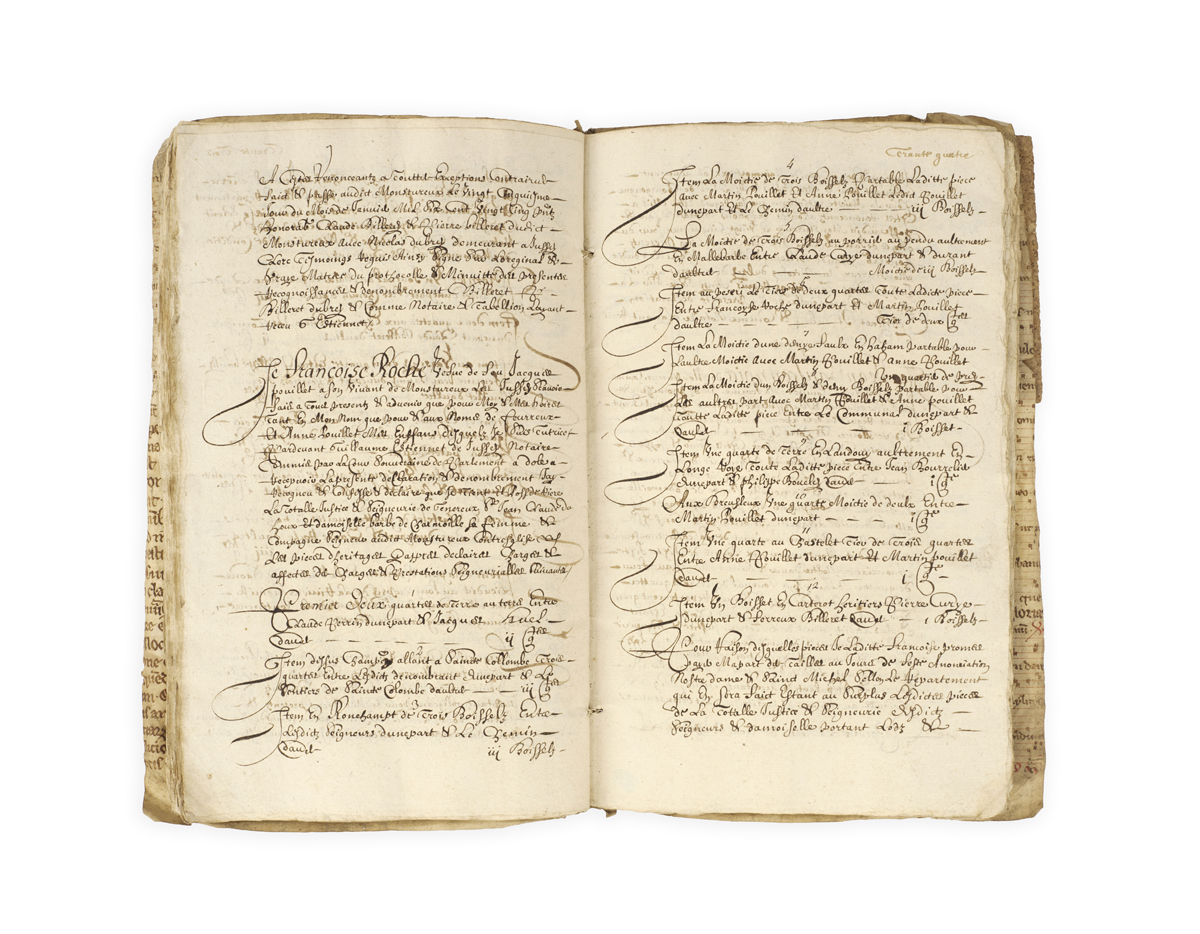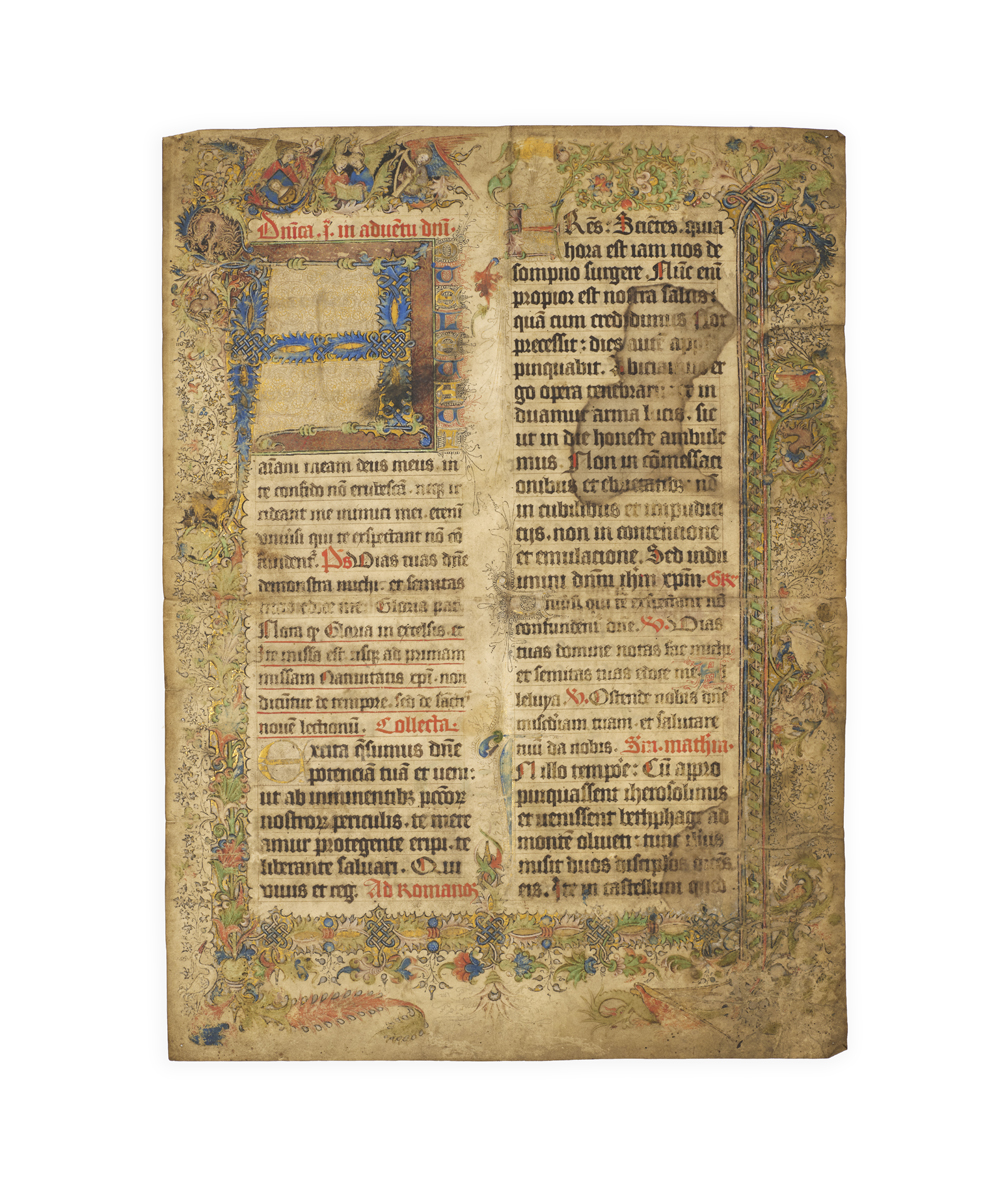
REVOLUTIONARY ACCOUNTS
VINCENS, Jean Alexandre.
Account book.
Nimes, France, 1783-1800.
Manuscript on paper, in French, folio (34 x 23 cm), ff. [2], 94, [4, mostly blank]; very neatly written in brown ink; very well preserved in modern red decorative paper over boards, label to upper cover with manuscript note ‘Grand livre de nous ...’; light wear to extremities.
A unique record of the financial transactions and business dealings of a leading Protestant family of bankers and merchants in Nîmes, in the south of France, prior to and during the French Revolution, covering the period between May 1783 and Fructidor year VIII i.e. 1800.
Jean Alexandre Vincens (1760-1840) was the son of Alexandre Vincens (1725-94), writer and professor of rhetoric, and Madeleine Devillas. His siblings included Jacques Vincens-Saint Laurent (1758-1825, soldier, noted singer, politician and historian) and Jean-César Vincens-Plauchut (1755-1801, politician). In 1789 Jean Alexandre married Madeleine, daughter of Louis Mourgue (1735-1810), receiving – according to this manuscript – a dowry of 25,000 francs in specie and 75,000 livres in notes.
The Vincens family were major players: ‘A Nîmes ... le banquier Jean Alexandre Vincens-Mourgue sous la raison Vincens, Davillas, Pascal et Cie, reste la première maison du Gard, avec dix millions de chiffre d’affaires annuel’ (Louis Bergeron, Banquiers, négociants et manufacturiers parisiens du Directoire à l’Empire). In 1793 Alexandre Vincens purchased the Ursuline convent in Nîmes for the use of Protestants, subsequently known as the Petit Temple.
This detailed record of Jean Alexandre’s income and expenditure shows his dealings with Boyer, Devillas, Vincens et Cie. ; Vincens, Devillas, Pascal et Cie. ; Boudon et fils ; Pomier de Montpellier ; and with his brothers (including Emile Vincens), wife, and father-in-law. In year III, Jean Alexandre and his brothers made a significant real estate purchase in acquiring the commanderie of Plan-de-Peyre, close to Nîmes, a property formerly held by the Grand Prior of the Knights of Malta, and this manuscript records numerous transactions relating to the estate.
While our manuscript records income from lottery tickets, interest, annuities, rents, agios, and trade in all manner of goods, from cloth to furniture, some of the most charming detail lies in the records of expenditure. Here can be found payments, for example, for hairdressing, ‘bonbons’, scissors ‘pour rogner les ongles’, ‘un moulin à café’, ‘une table a tric trac’, books and maps (‘Histoire de Don Quichotte’, ‘Gil Blas’, ‘une carte geographique de France’), a picnic on New Year’s Day 1787, subscriptions ‘à la comédie’, a ‘spectacle de Pinetti’ (i.e. the magician Joseph Pinetti), dental care (‘au dentiste pour m’avoir nettoyé la bouche’, ‘pour une dent fausse’), and sums ‘perdu au jeu dans le courant de cette année’. In the midst of the Revolution there are also references to payments such as ‘contribution pour la prime accordée aux boulangers’ (in 1792), and ‘pour le recrutement de l’armée’ (1793), and several accounts are referred to as being ‘abandonné à cause des assignats’.

